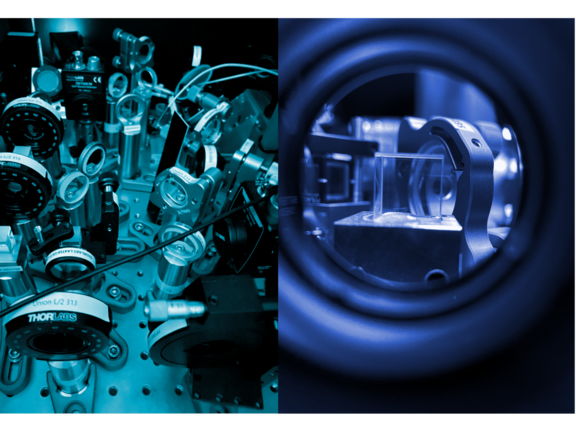Search for new physics with highly charged ions
Abteilung Pfeifer
Junior Research Group (NWG)
Dr. Vera Schäfer
Atomic transition frequencies are the most precisely measurable quantities in physics. At the same time they have a strong dependence on fundamental forces and effects, making them ideal probes to test our understanding of fundamental physics. Highly charged ions are especially interesting, as their remaining electrons are very tightly bound to the nucleus. This strongly increases their interaction with the core and makes them more susceptible to e.g. relativistic effects. While highly charged ions are difficult to control directly, quantum logic spectroscopy, a technique inspired by quantum information science, can be used to perform high precision measurements via a well-controllable singly charged ion qubit.
We will use quantum logic spectroscopy to precisely measure transition frequencies of highly charged ions. One question we are particularly interested in is whether constants of nature are truly constant, or whether they can vary either over time or space. The standard model makes no predictions about the number and value of fundamental constants — all of our knowledge about them is empirically measured. Several theories for physics beyond the standard model, e.g. scalar ultralight dark matter or loop quantum gravity, predict that fundamental constants can vary. By performing high precision spectroscopy on highly charged ions, which have transitions with strongly increased sensitivity to the fine-structure constant α, we can experimentally test these theories, and find out whether fundamental constants are truly constant or not.
